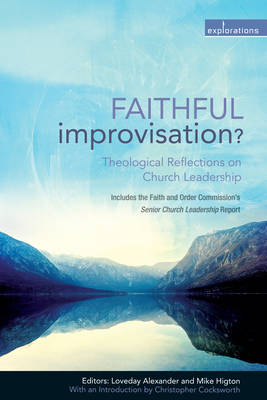
- Afhalen na 1 uur in een winkel met voorraad
- Gratis thuislevering in België vanaf € 30
- Ruim aanbod met 7 miljoen producten
- Afhalen na 1 uur in een winkel met voorraad
- Gratis thuislevering in België vanaf € 30
- Ruim aanbod met 7 miljoen producten
Zoeken
Faithful Improvisation?
Theological Reflections on Church Leadership
€ 27,95
+ 55 punten
Omschrijving
Faithful and effective church leadership requires preparation in prayer, theological reflection and a wide range of pastoral, prophetic and practical skills in order to ensure that what the Church discerns as necessary the Church does. Faithful Improvisation? is both a contribution to a current and sometimes vigorous debate on how the Church trains its leaders and also a practical and theological resource for discerning what the Spirit is saying and then acting upon it in local church contexts. Part One includes the full text of the Senior Church Leadership report from the Faith and Order Commission. Part Two offers reflections by Cally Hammond, Thomas Seville, Charlotte Methuen, Jeremy Morris and David Hilborn, on practices, models and theologies of leadership in different periods of church history which informed the FAOC report. Part Three opens up a broader discussion about present and future leadership within the Church of England. Mike Higton sketches out a dialogue between Senior Church Leadership and Lord Green's report, Talent Management for Future Leaders; Tim Harle offers a personal reflection from the perspective of the community of leadership practitioners; and Rachel Treweek concludes with an exploration of the essentially relational character of leadership.
Specificaties
Betrokkenen
- Uitgeverij:
Inhoud
- Aantal bladzijden:
- 224
- Taal:
- Engels
- Reeks:
Eigenschappen
- Productcode (EAN):
- 9780715147382
- Verschijningsdatum:
- 30/06/2016
- Uitvoering:
- Paperback
- Formaat:
- Trade paperback (VS)
- Afmetingen:
- 156 mm x 234 mm
- Gewicht:
- 362 g

Alleen bij Standaard Boekhandel
+ 55 punten op je klantenkaart van Standaard Boekhandel
Beoordelingen
We publiceren alleen reviews die voldoen aan de voorwaarden voor reviews. Bekijk onze voorwaarden voor reviews.






